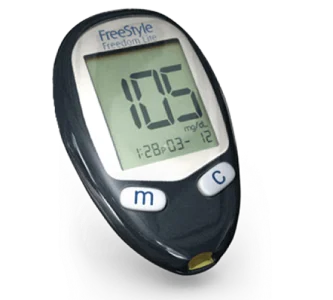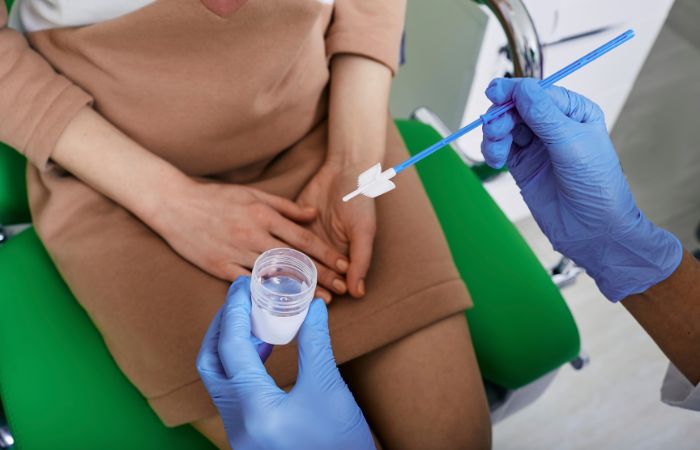Pregnancy is a thrilling, life-changing experience filled with joy and anticipation. However, it also comes with its share of health considerations. One concern that many expectant mothers face is gestational diabetes mellitus (GDM). Though the term may sound daunting, understanding Gestational Diabetes in Pregnancy and knowing how to manage it can empower you throughout your pregnancy.
In this blog, we’ll dive deep into everything you need to know about gestational diabetes, from risk factors to preventive measures, and how to stay on top of your health for a safe pregnancy.
What is Gestational Diabetes?
Gestational diabetes is a type of diabetes that occurs during pregnancy when your body struggles to regulate blood sugar levels effectively. Unlike Type 1 or Type 2 diabetes, gestational diabetes usually disappears after childbirth, but it can have significant implications during pregnancy and may increase the risk of developing Type 2 diabetes later in life.
How Does Gestational Diabetes Develop?
During pregnancy, your body undergoes numerous hormonal changes that can interfere with insulin, the hormone responsible for controlling blood sugar. When insulin isn’t working properly, glucose builds up in the blood, leading to high sugar levels—a condition known as hyperglycemia.
Screening for Gestational Diabetes: The Tests You Should Know About
Most women are screened for gestational diabetes between the 24th and 28th weeks of pregnancy. The two most common tests include:
- Glucose Challenge Test (GCT): This test measures how your body responds to sugar. You’ll drink a glucose solution, and after an hour, your blood sugar will be tested.
- Glucose Tolerance Test (GTT): If your GCT results are abnormal, you may undergo the GTT, where your blood sugar is checked multiple times over a few hours after drinking a glucose solution.
Who Is at Risk of Developing Gestational Diabetes?
Not every pregnant woman is equally at risk of gestational diabetes. While anyone can develop GDM, certain factors increase the likelihood:
Family History and Genetics
If there is a strong history of diabetes in your family—whether from your parents, siblings, or even extended relatives—you may have a higher risk of developing gestational diabetes. Genetics plays a significant role in determining how your body handles insulin.
Obesity and High BMI
Women with a pre-pregnancy Body Mass Index (BMI) of 30 or higher are at a greater risk. Excess weight can make it harder for your body to use insulin effectively, increasing the chances of gestational diabetes.
Age
If you’re pregnant and over the age of 35, your risk of GDM increases. This is largely due to the body’s declining ability to regulate insulin as you age.
Polycystic Ovarian Syndrome (PCOS)
Women with PCOS, a hormonal disorder affecting the ovaries, have an increased risk of gestational diabetes due to insulin resistance.
Previous Pregnancy Complications
If you had gestational diabetes in a previous pregnancy or gave birth to a baby weighing more than 9 pounds (macrosomia), your chances of developing GDM in future pregnancies are higher.
Symptoms of Gestational Diabetes
Often, gestational diabetes doesn’t present any obvious symptoms, which is why regular screening is crucial. However, some women may experience:
- Excessive thirst
- Frequent urination
- Fatigue
- Blurred vision
If you notice any of these symptoms, it’s essential to consult your doctor.
Managing Gestational Diabetes: What You Can Do
If diagnosed with gestational diabetes, managing your condition is essential for both your health and your baby’s well-being. Fortunately, GDM can be effectively controlled with a combination of lifestyle changes and, in some cases, medication.
Diet and Nutrition
Your diet plays a crucial role in managing gestational diabetes. Opt for a balanced diet rich in:

- Complex carbohydrates (whole grains, vegetables)
- Lean proteins (chicken, fish, tofu)
- Healthy fats (avocados, nuts)
Avoid sugary foods and beverages as much as possible, and spread out your meals throughout the day to maintain stable blood sugar levels.
Regular Exercise

Staying active can help your body use insulin more effectively. Activities like walking, swimming, or prenatal yoga can be incredibly beneficial. Aim for at least 30 minutes of moderate exercise most days of the week, but always consult with your doctor before starting any new exercise routine.
Monitoring Blood Sugar Levels

Keeping track of your blood sugar is vital in managing gestational diabetes. You may need to test your levels several times a day using a glucose meter. Your healthcare provider will give you specific guidelines on how to monitor and maintain your sugar levels.
Medication and Insulin Therapy

In some cases, lifestyle changes may not be enough to control blood sugar levels. Your doctor may prescribe medication like metformin or insulin therapy to help regulate your glucose. Don’t worry—these treatments are safe for both you and your baby.
Can Gestational Diabetes Affect My Baby?
One of the biggest concerns for expectant mothers diagnosed with gestational diabetes is how it may affect their baby. While most women with GDM go on to have healthy pregnancies, there are some risks involved, including:
Macrosomia (Large Baby)
Gestational diabetes can cause your baby to grow larger than normal, which may increase the likelihood of needing a C-section or encountering complications during vaginal birth.
Low Blood Sugar After Birth
Babies born to mothers with gestational diabetes may experience low blood sugar (hypoglycemia) after birth. Monitoring and feeding the baby shortly after delivery can help prevent this.
Respiratory Issues
In rare cases, babies may have difficulty breathing immediately after birth, a condition known as respiratory distress syndrome.
Will Gestational Diabetes Go Away After Birth?
For many women, gestational diabetes resolves after delivery. However, having GDM does increase your risk of developing Type 2 diabetes in the future. It’s estimated that 60% of women who have gestational diabetes will develop Type 2 diabetes later in life.
Postpartum Care and Follow-Up
After giving birth, it’s important to keep an eye on your blood sugar levels. Your doctor will likely recommend a glucose tolerance test 6-12 weeks postpartum to ensure that your levels have returned to normal. Regular follow-ups can help catch any early signs of Type 2 diabetes.
Understanding High-Risk Pregnancy and Gestational Diabetes
Gestational diabetes is considered one of the factors that can contribute to a high-risk pregnancy. A high-risk pregnancy means that both the mother and the baby may face increased health challenges during pregnancy, labor, or delivery. It is important to have an experienced healthcare provider who specializes in managing such cases to ensure the safety of both mother and child.
What Makes a Pregnancy High-Risk?
A pregnancy may be classified as high-risk if the mother has pre-existing medical conditions, such as diabetes or hypertension, or if complications arise during pregnancy, such as gestational diabetes or preeclampsia. Other factors include advanced maternal age (35+), multiple pregnancies (twins, triplets), and a history of pregnancy complications.
How Gestational Diabetes Contributes to High-Risk Pregnancy
Gestational diabetes can increase the chances of complications like preeclampsia, premature delivery, and the need for a C-section. It can also affect the baby’s health, leading to macrosomia (a large baby), low blood sugar after birth, and respiratory problems. That’s why managing blood sugar levels and following a closely monitored treatment plan is crucial.
Expert Care with Dr. Aditi Godbole
Dr. Aditi Godbole, a highly experienced obstetrician and gynecologist, specializes in managing high-risk pregnancies, including cases of gestational diabetes. With her expertise, she offers comprehensive care to ensure the best possible outcomes for both mother and baby. From regular prenatal checkups to specialized monitoring, Dr. Godbole provides personalized care plans tailored to each patient’s unique needs.
As a trusted high-risk pregnancy doctor in Thane, Dr. Aditi Godbole focuses on early diagnosis, preventive measures, and ongoing management to reduce the risks associated with gestational diabetes. Her approach ensures that expectant mothers receive the support they need for a safe and healthy pregnancy journey.
For more information, you can visit her website here.
Preventing Gestational Diabetes: Is It Possible?
While you can’t change factors like your age or genetics, there are certain lifestyle changes that can help lower your risk of developing gestational diabetes.
Maintain a Healthy Weight Before Pregnancy
If you’re planning to get pregnant, maintaining a healthy weight before conception can significantly reduce your risk. A balanced diet and regular exercise can help you achieve a healthy BMI.
Manage PCOS and Other Hormonal Issues
If you have PCOS or other hormonal imbalances, work with your doctor to manage these conditions before getting pregnant. Medications and lifestyle changes can help reduce your risk of developing GDM.
Regular Prenatal Care
Regular prenatal visits can help detect gestational diabetes early. Follow your doctor’s advice on screening tests and discuss any concerns you may have about your health during pregnancy.
Conclusion
Gestational diabetes can be a challenging diagnosis, but with the right information and proactive measures, you can manage it successfully. By staying on top of your health, maintaining a healthy lifestyle, and working closely with your healthcare team, you can navigate your pregnancy with confidence.
Always remember that your health is in your hands—be vigilant, stay informed, and enjoy this incredible journey to motherhood.







